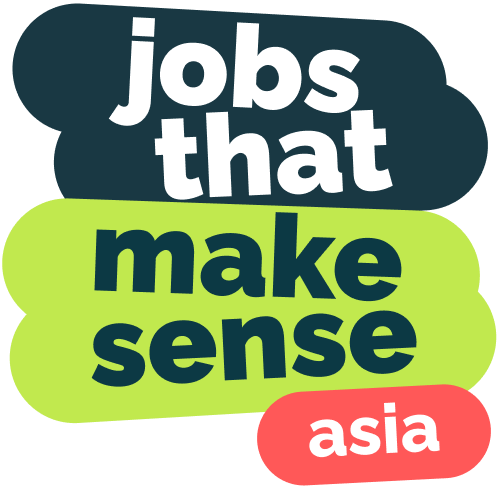Navigating the future of work with sustainability and impact
In today’s world, the buzzwords “net-zero,” “clean economy,” and “impact-driven careers” are more than just trends; they’re defining the future of work. If your career has always revolved around traditional corporate roles, the idea of a “job with impact” might seem abstract or even intimidating. But in reality, it’s a window of opportunity to align your work with a better world—a world transitioning toward sustainability, equity, and resilience.
What does a job with impact mean?
A job with impact goes beyond the paycheck. It’s about contributing to solutions for some of the world’s biggest challenges—from climate change to social inequality—while building a fulfilling career. These roles can span various industries, including renewable energy, green urban planning, sustainable agriculture, education, and more.
For instance:
- Net-zero initiatives: Careers that contribute to achieving carbon neutrality, such as solar energy technicians or carbon accounting specialists.
- Clean economy roles: Jobs in industries like sustainable manufacturing, waste management, or electric vehicle technology.
- Social impact jobs: Positions in NGOs, policy advocacy, or community development that focus on equity, inclusion, and better access to resources.
Support roles across these areas include marketing professionals, fundraisers, project managers, communications specialists, and grant writers, who play key parts in driving and supporting the success of sustainability, clean economy, and social impact initiatives.
Understanding net-zero jobs and the clean economy
Net-zero refers to balancing the amount of greenhouse gases emitted with the amount removed from the atmosphere. Achieving net-zero emissions by 2050 is crucial to combating climate change, and this goal is reshaping job markets worldwide. It’s not just an environmental priority; it’s an economic transformation.
The clean economy is the engine driving this change. It’s a system of industries and services built around renewable energy, sustainable practices, and innovative technologies. From designing eco-friendly products to engineering energy-efficient buildings, the clean economy is creating a surge of demand for skilled professionals in green jobs.
Why transitioning to green jobs matters
If you’ve always pictured success as climbing the corporate ladder, it’s time to imagine a broader horizon. Transitioning to a job that aligns with sustainability or social impact doesn’t mean starting over; it’s about repurposing your skills. Consider this:
- A project manager in construction can become a sustainable infrastructure planner.
- A marketing professional can pivot to promoting green products or impact-driven campaigns.
- An engineer in manufacturing can transition to designing energy-efficient technologies.
The development sector, which includes roles in international aid, social entrepreneurship, and environmental advocacy, offers countless opportunities to make a tangible difference. Whether you’re directly involved in project implementation or working behind the scenes in strategy and operations, you’re part of a movement shaping a better future.
Steps to transition into green jobs and impact-driven careers
Making the leap into the world of green jobs and the development sector might feel daunting, but here’s how you can get started:
- Explore your interests: Reflect on what drives you. Are you passionate about climate action, education, or public health? Identifying your interests will help you focus your efforts.
👉🏼 How can I find an impact-driven job that suit my profile?
- Upskill strategically: Look for courses, certifications, or workshops in areas like sustainability, renewable energy, or social innovation. Online platforms offer plenty of affordable options to learn the skills required in the clean economy.
👉🏼 Explore programs for smooth transition to impact
- Leverage your network: Connect with professionals already working in impact-driven roles. Platforms like LinkedIn and organizations specializing in green job boards can be invaluable resources for exploring new opportunities.
- Update your portfolio: Highlight transferable skills that align with the green economy. For instance, leadership, problem-solving, and adaptability are highly valued in impact-driven roles.
👉🏼 How to explain career transition?
- Start small: Volunteer, freelance, or take up side projects in the field you’re exploring. These experiences can be stepping stones to full-time opportunities in the net-zero and clean economy sectors.
👉🏼 Explore jobs in Southeast Asia
The bigger picture: Your role in a net-zero, clean economy
The transition to a net-zero, clean economy isn’t just about jobs; it’s about people—individuals like you—who are ready to reimagine their careers for the greater good. By aligning your work with the world’s most pressing needs, you’re not just securing a future-proof career; you’re contributing to a global movement focused on sustainability.
So, if you’re feeling the pull to step out of your corporate comfort zone, remember: every journey starts with a single step. Whether it’s taking a course, connecting with like-minded professionals, or exploring the vast opportunities within the green jobs sector, your path to impact starts today.

